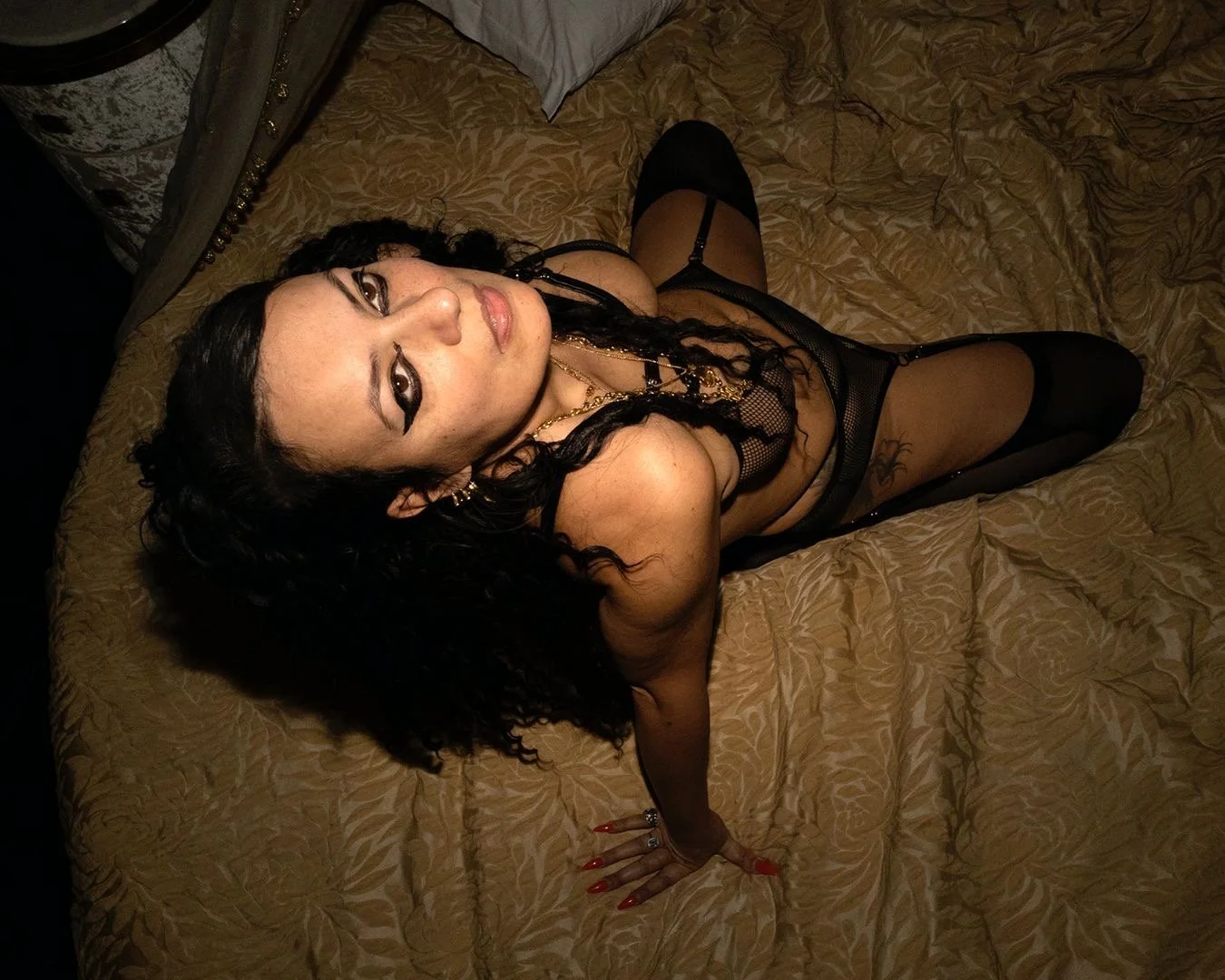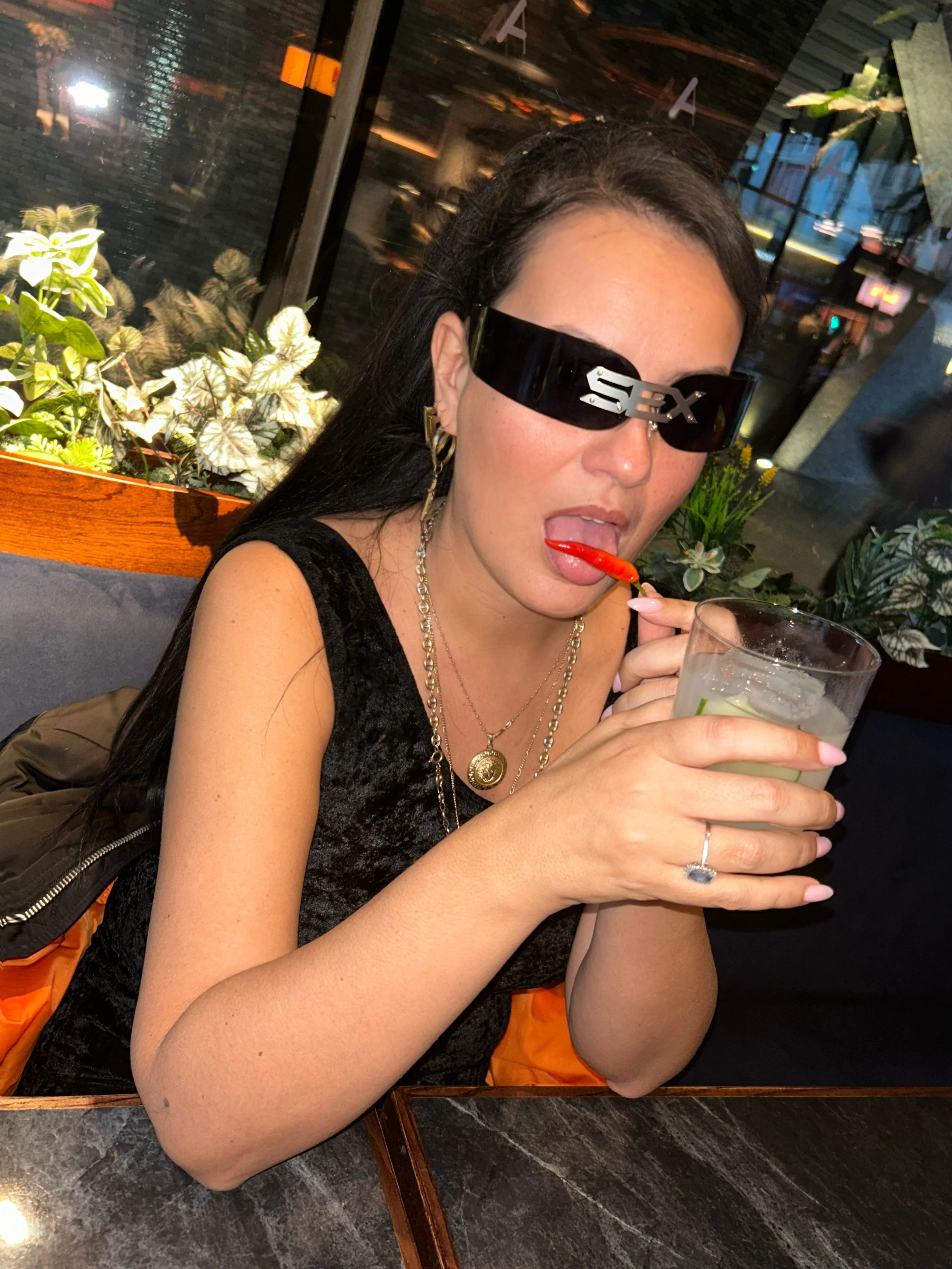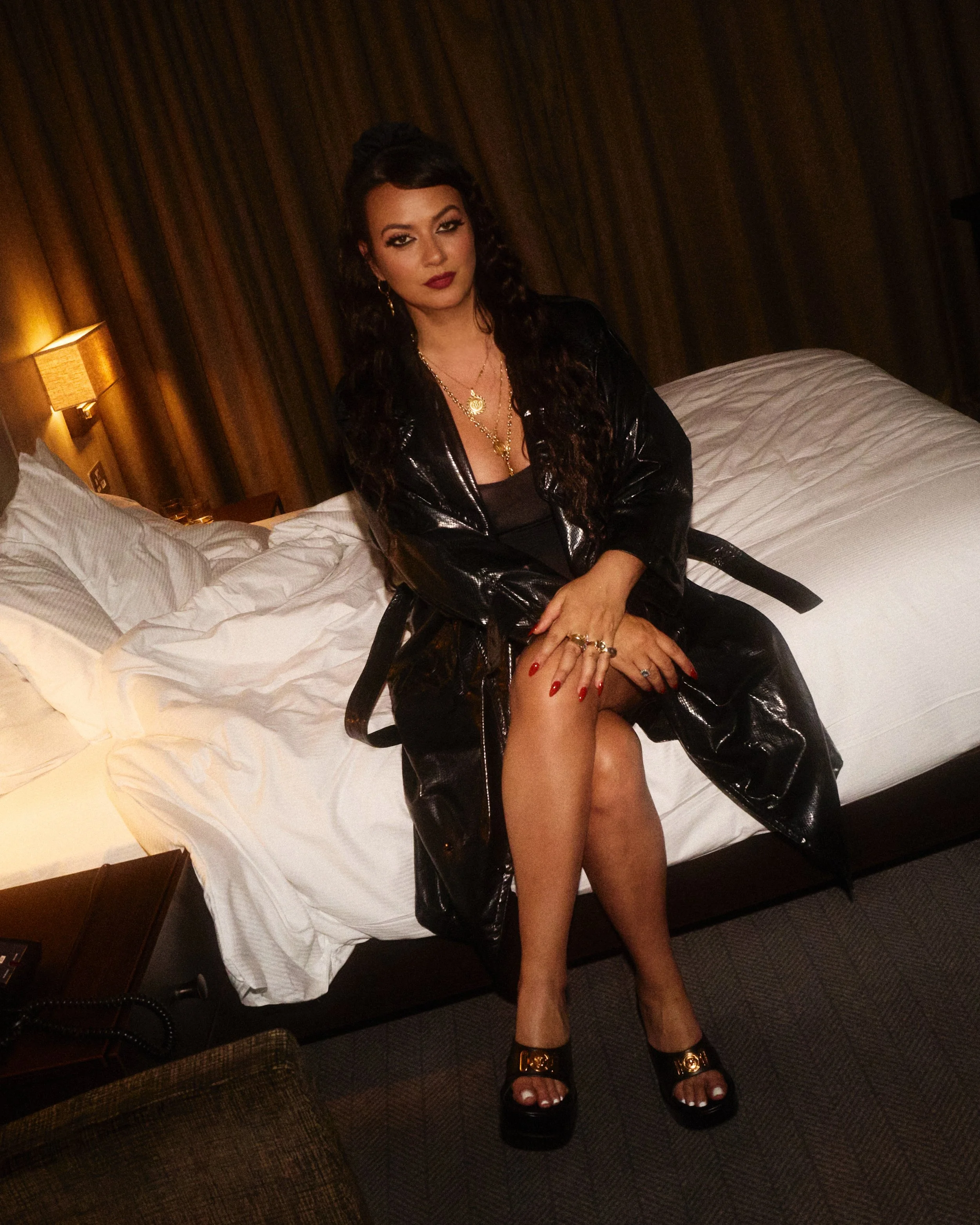In conversation with: System Olympia
‘I will forever pay homage to the Italian composers that showed me how to embed lust and romance into melodies’ System Olympia — Love Language
Having celebrated with a cigar and mezcal negroni at her local cocktail bar in Dalston, I
spoke to the resident Night Tales’ Loft DJ System Olympia about the recent launch of her double-vinyl compilation album Love Language. Boasting a long catalogue of
predominately self-produced albums on her label Okay Nature Records (featuring seminal Eps and LPs like ‘New Erotica’ and ‘Sanctified’), the prolific producer adds to her unfiltered vision of erotica through 18 tracks that present themselves as expressions of desire in a myriad of forms.
Released to accompany the hypnotic, sensual melodies and synth driven grooves of her single ‘Heat of the Night,’ the video sees Olympia and featured artist REINEN weave between a foray of hotel rooms. She says she wanted the release of this single to be “surrounded by music I liked from other artists, from other times. [I wanted to] take these songs and frame them in beautiful art so that they can be heard but also seen and felt like they deserve.” Love Language features an eclectic mix of tracks dating as far back as 1975. Pulsating dance numbers like Midnight Magic’s ‘Beam Me Up’ and Italo House star Flavia Fortunato’s ‘Se Tu Voi’ complement Olympia’s signature sound. There’s also the the grit, grime and growl of See Thru Hands’ post-punk heater ‘Hot City’ and the more downtempo melancholy of Tom Sharkett and Raf Rundell’s ‘Where’s It All Go’ that offers some respite from the more dance heavy tracks.
When asked how the curation of these tracks compare to putting together a mix on her NTS radio slot, or performing in a club space, Olympia compares the the ebbs and flows of the album to the turbulence of living with PMDD, or Premenstrual Dysphoric Disorder, a severe mood disorder that can severely interfere with daily life through anger, irritability and depression in the week or two prior to one’s period, “It’s a condition that pretty much ruined my life until I decided to try riding these waves instead of fighting against them. So, moments of despair become songs, highs of euphoria turn into club mixes, spikes of Oestrogen become album covers that get censored.”It is through these deeply physical propensities, like a hazy exhale of breath and telephone imbued synth loops on Dirty Art Club’s ‘Daysleeper’ shape moments of intimacy, longing, and vulnerability forming the album’s emotional core. Couple this with the carnal velocity of Musclecars’ near eight-minute dance anthem ‘Running Out of Time’ and you’ll find the cathartic release of the record, arousing a sense of freedom in the listener.
Refusing to shy away from her vision of desire, Olympia encodes Love Language with a story that touches upon what she considers to be both, ‘‘the most personal, the most universal. Deep, deep down, we are all made of the same matter that’s been breaking down and recycling itself in this universe.” Seeking to unveil what binds romances, “I like to look through it all, then take what others set aside, repress or hide, and put it on display.” Love Language is of course both sonically and visually provocative, accompanied by a zine that showcases provocative photography and snippets of poetry, as well as a cinematic score from Italian composers Stefano Torossi and Piero Umiliani guiding the album’s central theme. Olympia declares that she will “Forever pay homage to the Italian composers that showed me how to embed lust and romance into melodies.” Citing Ennio Morricone as another cornerstone influence, she clarifies that she still sees herself as casting her own mark through her explicitly erotic vision, “[I] refused every system I found myself part of since I was a little girl and I did feel like I am the first of my own lineage, but I did take on and continue the art of portraying human emotions with art and music.”
Clearly, there is an unapologetic ethos underpinning Olympia’s work, where the nostalgia for the bygone is put under an erotic duress. But in a world squeezed by both creative and political restraints, she offers no ready explanation as to how eroticism can necessarily resolve that plight. “My choice is to portray my experience in full. Without an excuse, without an agenda, without an apology, without commodifying anything. I don’t have an antagonist I’m fighting against.” Championing a transparent sense of individual freedom, to live according to those principles is her real act of rebellion. Her art is simply there to “suggest”, “I like to set tones and provide fertile ground. The rest is mysterious magic.”
Written by Reda Gray
Edited by Joe Hurdman




